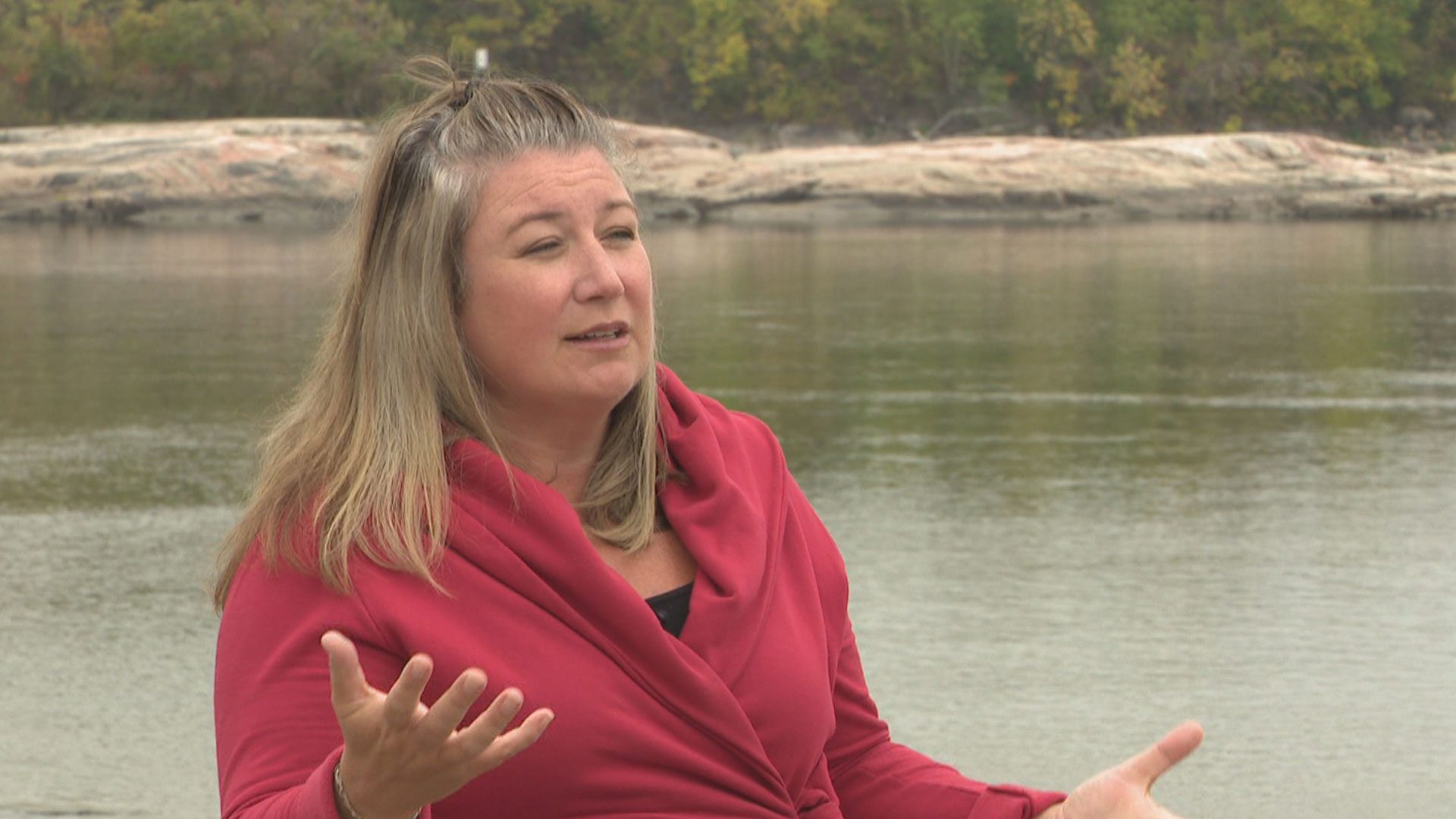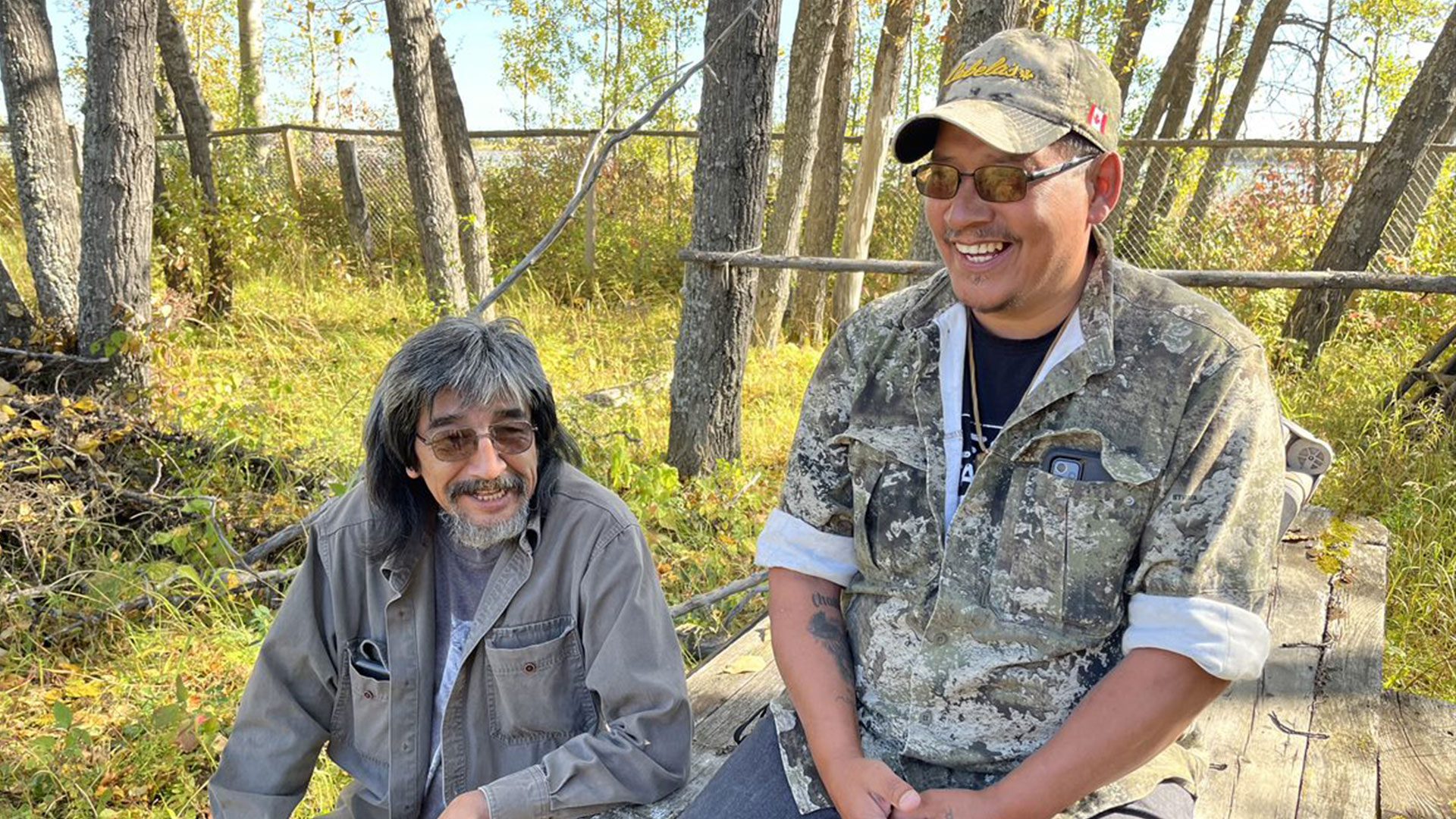Prime Minister Justin Trudeau is promising a new version of the Canada Water Act – and one of the improvements, he says, will be in the area of Indigenous rights.
What that might mean for Indigenous people and communities is the focus of APTN Investigates: Liquid Law.
Earlier this year at the fork of the Red and Assiniboine rivers in Winnipeg, the prime minister announced not just the updated Water Act – but a new agency to administer the regulation of water across the country.
The Canada Water Agency is to be based in Winnipeg – and Trudeau specified that “one of the first priorities of the Agency will be to begin the work of modernizing the Canada Water Act to reflect … the importance of Indigenous rights.
“We recognize the partnership of Indigenous communities and their reminder that water is life,” he said.
Trudeau also re-pledged his government’s commitment to “lifting all remaining long-term drinking water advisories like we’ve done in communities like Shoal Lake.”
Shoal Lake 40 is emblematic of the kinds of drinking water challenges First Nation communities have faced.
It’s where the City of Winnipeg pipes in its drinking water from, though, ironically the community of Shoal Lake has lived under water advisories for more than two decades.
It’s the kind of situation the Southern Chiefs Organization Grand Chief Jerry Daniels is all too familiar with.
The grand chief in Manitoba spoke to APTN Investigates ahead of attending a meeting in Toronto with the Forum for Leadership on Water, or FLOW – a group of former political leaders, academics and water policy-minded folk.

Daniels joined their discussion on how the new Canada Water Agency ought to correctly operate – and he says it is key to involve Indigenous people at a high level.
“I think they need to transfer jurisdiction and they need to fund organizations like ourselves to establish our own water agencies, our own First Nations water agencies,” said Daniels.
University of Ottawa associate professor Aimée Craft studies Indigenous governance in relationship with land and water – and she also attended the FLOW meeting.
If the new legislation is to shift its focus as promised, then Craft welcomes it.
“Well, it’s about time,” said Craft. “If you look at the original act, it was focused primarily on agriculture and preserving quantities of freshwater resources.”
Craft said she wants the new legislation to encompass the spirit of the United Nations Declaration on the Rights of Indigenous People, which became law in Canada in 2021.
“And that means not only being passively consulted and then providing consent, but actually being involved in decision making and management of different kinds of water resources and impact on water through the management of other resources as well,” said Craft.
Craft also points to Grand Council Treaty 3’s Nibi Declaration as a document that could provide inspiration for the new act.
“It’s a shift of paradigm from let’s control water, which is a very Western idea of thinking, to an Indigenous thought or methodology of considering water as living, as having its own agency,” said Craft.

To better understand the water-related injustices faced by Indigenous people that a new Water Act ought to want to help avoid in the future, Craft suggested a good person to visit would be Robert Spence of Tataskweyak Cree Nation.
“Robert said something to me once, ‘I grew up in the shadow of a dam and I’ll die in the shadow of another,’” she said.
Indeed, Split Lake – the home of Tataskweyak Cree Nation – is between Keeyask and Kelsey, two Manitoba Hydro facilities that generate power with water diverted from the Churchill River into the Nelson River.
Increased turbidity due to higher flow rates and erosion, as well as tests showing the presence of E. coli and Cylindrospermopsin are just some of the water-related issues the community has grappled with.
A court victory against the federal government means that construction of a new water treatment facility that will draw water from nearby Assean Lake instead of Split Lake starts next year.
But despite that positive news, Spence holds the changes to how water moves through Tataskweyak territory responsible for destroying a way of life.
“The governments and corporations expect us to live our lives as best we can in a natural way, in an unnatural world that they’ve manipulated and destroyed,” said Spence, “all for the creature comforts of the South – all so that we can turn on buttons and flip switches.”
Spence said what Manitoba Hydro has done to the area has affected him personally too, first by taking away his livelihood when the fishery collapsed.
“Because I wasn’t able to fish, I figured I’m going to try and fight those changes that have happened,” said Spence. “I went to the boardrooms of Manitoba Hydro and told them what they were doing. Meanwhile, I left my son behind. I forgot about my son.”
Spence lost his son to suicide in 2021.
He and others in the community see a connection between drug and suicide problems and the devastation wrought by Manitoba Hydro’s manipulations of water flow.

To avoid similar miseries in the future, Spence says, what’s key is having First Nations at the table and keeping them there – something he wants the new legislation to do.
“A new Canada Water Act – include our voices in the decision-making process at the tables and within all the boardrooms that those decisions are being made that affect and impact our daily lives,” said Spence.
The Ministry of Environment and Climate and Climate Change is overseeing the creation of the new Canada Water Act and granted APTN Investigates an interview with the Trudeau’s parliamentary secretary, MP Terry Duguid.
Duguid told us in a basic sense how the new Act and Agency and are expected to work.
“It is going to be a funding agency,” said Duguid, “so the federal government is going to be supporting partnerships with First Nations, Métis and Inuit peoples.”
Duguid said the new Canada Water Agency will launch in the spring of 2024.
“But meanwhile,” said Duguid, “We’ve been talking to Indigenous organizations, including the Assembly of First Nations and Manitoba Métis Federation.”
To fund the new agency’s work, the government has committed three quarters of a billion dollars to be spent over the next decade.
APTN also asked Manitoba Hydro what they thought the implications of a new Canada Water Act might be for how they operate.
A statement provided by their communications department says, “From our review, there are currently no proposed amendments in the new Canada Water Act that have implications for Manitoba Hydro or that we can comment on.”












